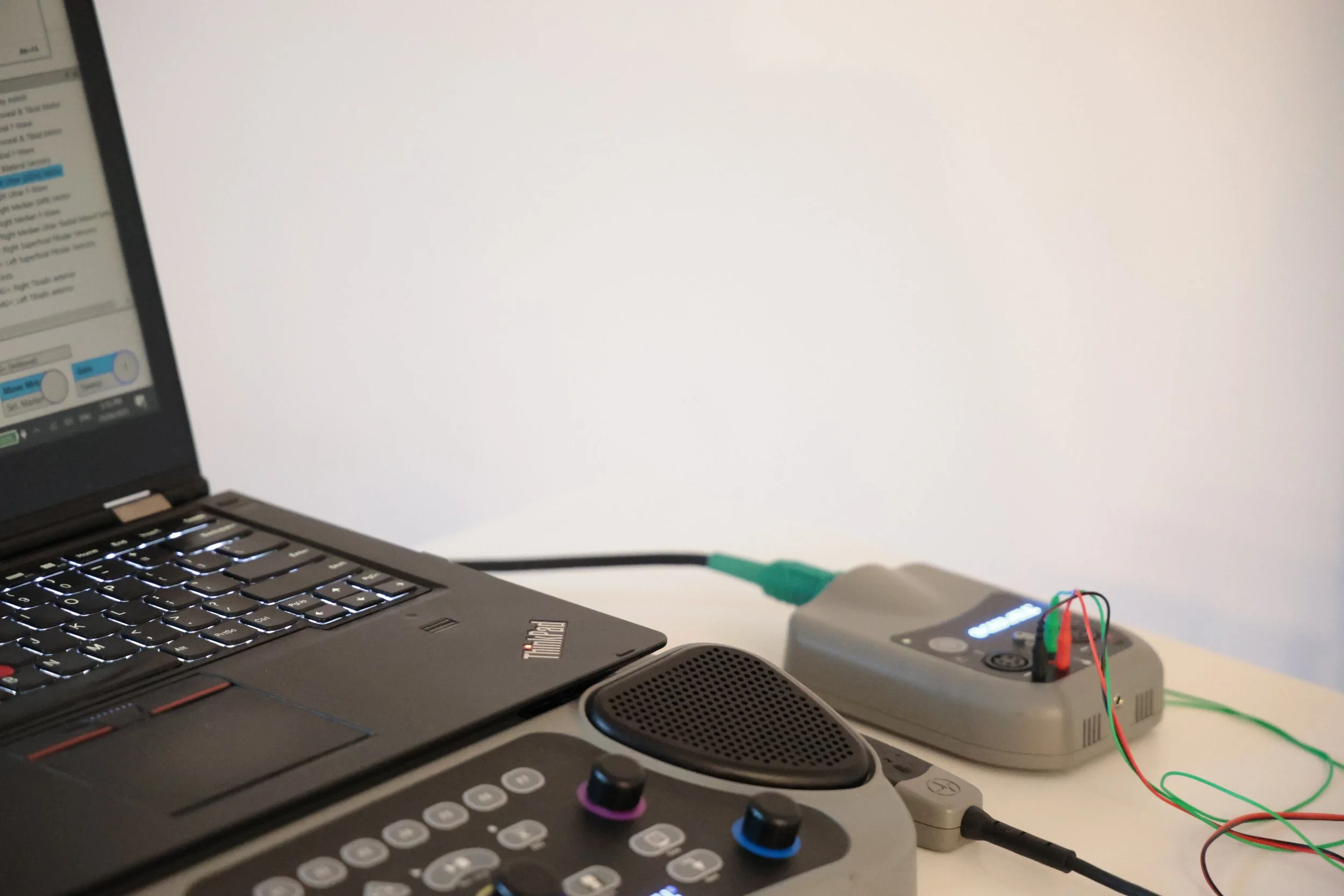
Nerve Conduction Studies & Electromyography
Nerve Conduction Studies and Electromyography
A nerve conduction study (NCS) involves activating nerves electrically with small, safe pulses over several points on the skin and measuring the responses obtained. Electromyography (EMG) involves measuring electrical activity within muscles by way of a needle electrode.
-
Another doctor (your GP, or specialist) looking after you, will have referred you to Epping Specialist Group for an EMG. At Epping Specialist Group, Dr Evans performs and interprets our EMG and nerve conduction studies. He is a neurologist who specialises in doing EMG tests.
There are many reasons why your doctor may have referred you for an EMG. Common reasons include trapped nerves or other nerve and muscle problems.
-
The test usually has two parts. Firstly, mild electrical pulses are used to stimulate different nerves so that we can work out whether the nerves are working properly. This part of the test is referred to as nerve conduction studies. Secondly, a fine needle may be put into muscles, to test muscle function. This is referred to as EMG (electromyography).
-
Electrical nerve tests and nerve conduction studies can feel like little electrical shocks. Most people will find these a bit uncomfortable but will be able to easily tolerate them. The needle tests are also slightly uncomfortable, but usually quite tolerable as the needles used are very thin, similar to acupuncture needles.
If there is anything that you feel is too uncomfortable, please let the doctor know. They will try to minimise your discomfort at all times but need to do enough to try to come to a diagnosis.
-
The equipment used is safe and extensively tested. Some precautions need to be taken with certain patients who have heart pacemakers or are on blood thinning drugs such as warfarin. Please inform the doctor if this affects you or if there is anything else about your medical history you think they should know.
There are no serious side effects from EMG. The electrical tests can sometimes result in hands or feet tingling for a few minutes afterwards. The needle tests may result in slight bleeding as in a pinprick. Your muscles may also ache for a few hours after the needle tests but this is usually very minor.
-
It is recommended to wear loose and easily removable clothing.
Short sleeved clothes can make tests a bit easier to do. If possible, do not wear jewellery that would be difficult to remove.
Avoid wearing any skin moisturisers as they make it difficult to get good recordings.
-
Dr Evans will send a report to the doctor who referred you for the EMG. This doctor will then pass the information on to you. It is not always possible to give you the results on the day of your test. Sometimes it is better for the doctor in charge of your overall care to look at all the different test results they have ordered, before discussing specific conditions. In some cases, more time is needed to analyse the results before coming to a conclusion.

